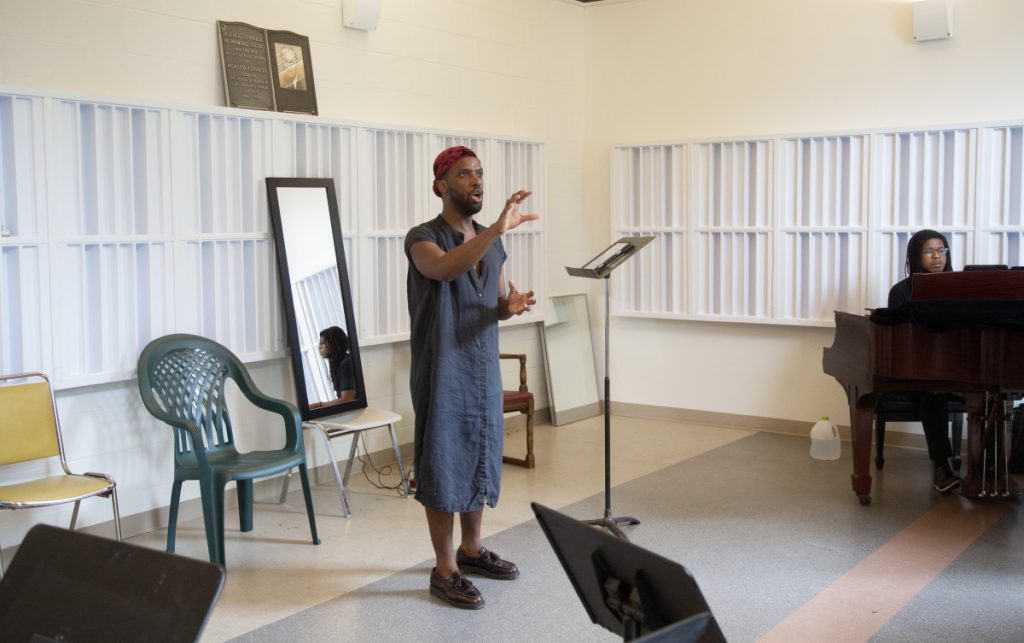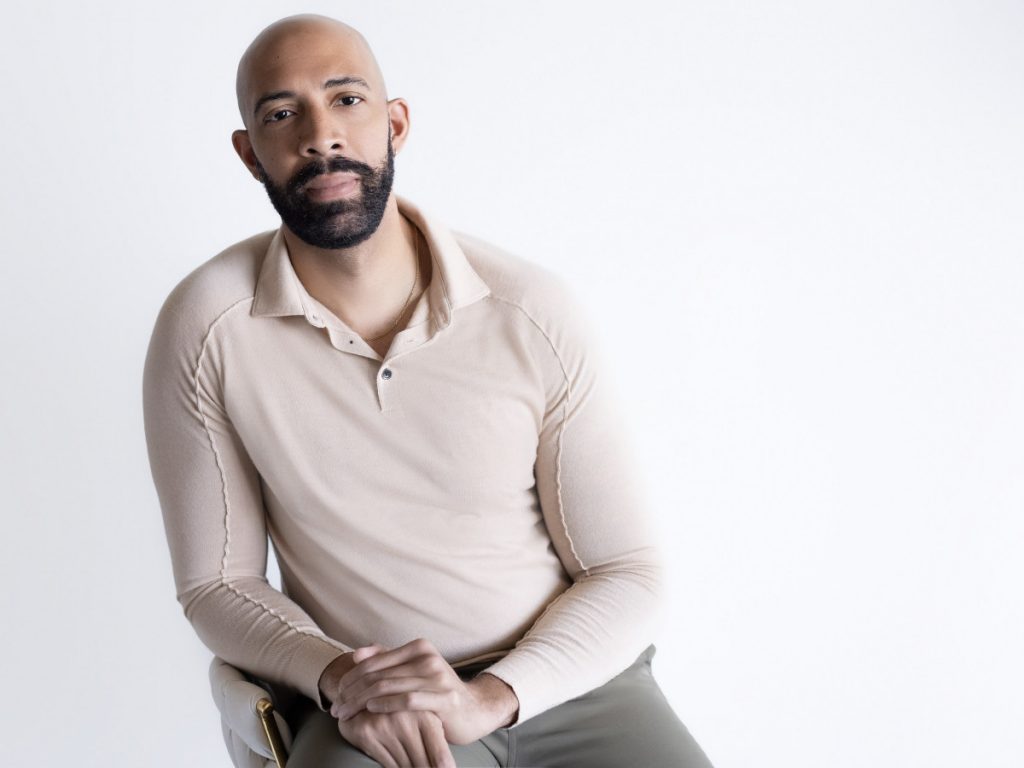
Liz DeLillo
Staff Writer
The Chautauqua Opera Conservatory will present “Common Threads: The Music of Damien Geter” at 6:30 p.m. tonight in Fletcher Music Hall. The performance includes selections from the opera Loving v. Virginia, featuring soprano Ella Vaughn and mezzo-soprano Christine Powell-Thomas, as well as excerpts from the song cycle Cotton, performed by bass-baritone Wayne Arthur. The performance will be followed by a discussion between composer Geter, stage director Kimille Howard and Artistic Advisor Denyce Graves-Montgomery.
Geter is an acclaimed American composer, conductor and bass-baritone known for bringing elements of classical music together with styles from the Black diaspora. Including chamber, orchestral, vocal and operatic pieces, Geter’s music engages themes of social justice and seeks to further its cause.
Cotton is a song cycle that incorporates music, poetry and the photography of John Dowell, which was commissioned by Lyric Fest to premiere at the Kennedy Center Terrace Theater in 2023. Dowell explored the cotton industry as a lens through which to explore the ancestral survival strategies of African Americans and the nation’s wealth. Distinguished poets then responded to Dowell’s photography, and these poems became the lyrics for Geter’s music.

“It’s bringing to the forefront the understanding that the ancestors that you may not have known about or that you lost in the past are still present and with us,” said Arthur.
In particular, Arthur has enjoyed how personal the song cycle can be for him.
“I can speak about and tap into my history as a Black immigrant, and I can hold the experiences and stories of my people in this work,” he said.
Loving v. Virginia is an opera about the 1967 U.S. Supreme Court case that legalized interracial marriage by unanimous vote. The opera follows Mildred and Richard Loving throughout their legal battle with the state. Vaughn will perform as Mildred, and Powell-Thomas as Musiel, Mildred’s mother.
The excerpted pieces gave them the opportunity to learn some of Geter’s work in depth in a condensed time frame, Vaughn said. She enjoyed how this allowed them to immerse themselves.
“We really dive deep into each line, each word, how each thing can be physicalized and characterized, and that work is really cool,” she said.
Opera as an artform is intended to allow audiences to feel emotion, Vaughn said, and the stories they perform — whether contemporary or classical — are more impactful when the performers and audience connect.
“We also need to be doing newer works alongside (traditional works) in order to keep people engaged — and especially work that is targeted toward marginalized communities because that’s how we get newer audience members involved,” Vaughn said. “It’s really important, and I’m excited to be a part of this.”




